Research Area: Gender & Nutrition
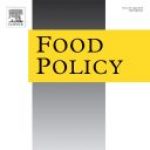
Women’s Empowerment and Intra-Household Diet Diversity Across the Urban Continuum: Evidence from India’s DHS
Abstract Read a policy brief based on this study. Women’s empowerment has been associated with improved nutritional outcomes in various settings. However, the gains from empowerment do not necessarily accrue to different members of the same household in the same manner. Furthermore, the relationship between...

Did the COVID-19 Lockdown Reverse the Nutritional Gains in Children? Evidence from Rural India
Abstract Read a policy brief based on this study. To address the missing link that goes beyond the changes in dietary consumption and food expenditures to assess the impact of the pandemic on child undernutrition, specifically anthropometric outcomes, this paper uses primary panel data (pre-...
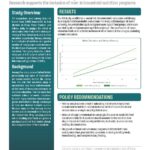
Men’s Education Tied to Improved Household Nutrition
This policy brief presents the findings of a TCI study assessing the impact of men’s education on household and women’s dietary diversity, an indicator of overall nutrition. Using survey data collected as part of the TARINA project, TCI researchers found that men’s education has a...

Leveraging Men’s Education as an Effective Pathway for Improving Diet Quality: Evidence from Rural India
Abstract Read a policy brief based on this study. Investing in nutrition-sensitive sectors such as education can be an effective strategy for combatting malnutrition. In this paper, we analyze the role that men’s education plays in determining dietary diversity outcomes using primary data from 3600...
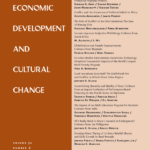
Alcohol Ban and Crime: The ABC’s of the Bihar Prohibition
Abstract We study the relationship between alcohol consumption and crime, following an alcohol prohibition in Bihar in 2016. Using a difference-in-differences approach, we explore the differential effects of alcohol on different crime types. We find that the prohibition led to a 0.22 standard deviation point...

Indian Obesity Varies by Gender, Rural/Urban Divide
This policy brief presents the findings of a TCI study examining differences in the incidence of overweight within India according to biological, technological, and environmental factors. The study shows that overweight and obesity rates are tied to such variables as gender and the level of...
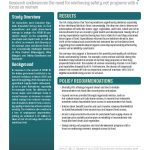
COVID-19 Lockdowns Hurt Women’s Nutrition Security
This policy brief presents the findings of a TCI study analyzing the COVID-19 pandemic’s impact on the availability of non-staple and staple foods, as well as its effect on women’s diet diversity at the national, state, and district levels in four economically challenged districts of...
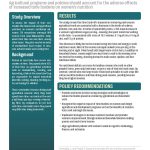
Increased Farm Work Worsens Women’s Nutrition
This policy brief presents the findings of a TCI study on the impact of time constraints like housework and agricultural activities on women’s nutritional outcomes. The study reveals that time trade-offs imposed on women by peak-season agricultural work are associated with a decrease in the...
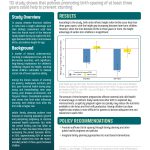
To Reduce Stunting, Space Out Births
This policy brief presents the findings of a TCI study exploring the linkages between birth order, time between births, and relative height-for-age. According to the study, birth order affects height when births occur less than three years apart, with the height gap increasing between later-born...

Essays on the Effects of Migration & Remittances on Households in Rural India
Abstract This dissertation focuses on the effects of migration and remittances on the welfare of families left-behind, in the context of farming households in rural India. Labor migration is heavily male dominant in India, and women and children are often left behind. Though internal migration...

